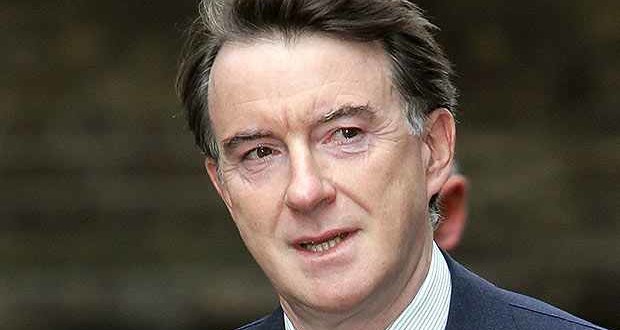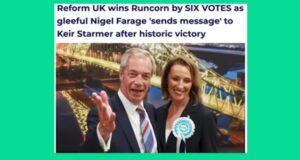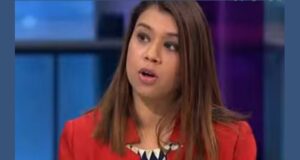As the dust settles, the empty champagne bottles are cleared away or the full champagne bottles are returned, unopened, to the cupboard, all the political parties are beginning the analysis of their campaigns and to look to their futures.
The Labour Party is facing a particularly anxious time – and there’s more than a touch of déjà vue about the debate it’s having on whether to return to being more like a Labour Party or to pick up the New Labour project again.
[Adverts]
The core thinking behind New Labour was that a number of constituencies were safe because ordinary working people had no electoral alternative to the Labour Party so were bound to return Labour MPs – even if Labour adopted what were more naturally Social Democrat or even Tory policies. These were, then, precisely the policies the Party should adopt – to win over Social Democrat and Tory voters and win the seats that would propel it into government.
The theory didn’t hold for long. Although New Labour did win over softer Lib-Dem and Tory voters and formed a government, those voters had no organic link to the Labour Party and were easily tempted back to their former loyalties. Even more importantly, Labour’s traditional voters became disillusioned with New Labour and drifted off to smaller parties or into a non-voting apathy when they saw the Party’s performance in government. New Labour lost seats: the Party had to ditch the architect of New Labour, Tony Blair; and eventually the Tories were able to make enough inroads to run a coalition government.
Labour was left bewildered, and Ed Miliband was never able to turn the Party round. Supported in the leadership election by the trade unions – and, therefore, by a potential seven million trade union members – he had little support from Labour MPs and had to act carefully to avoid damaging open revolt. The union leaderships collaborated with him and Labour went to the polls with a set of middle of the road policies which did little to motivate its hard core supporters, less to win back the middle ground floating voter – and didn’t work at all in Scotland.
Ironically, when Ed Miliband did promote a policy which would have been seen as a traditional Labour measure, his popularity soared. Most famously, he won great support for promising to repeal the bedroom tax, but he failed to capitalise on that strategy and pull in the voters.
Labour’s post-election debate is being led by the back-room boy who was the co-architect of the New Labour strategy. Peter Mandelson was allocated a safe Labour seat, but then had to step down from office twice amid various scandals. Allegations of scandal followed him when he was given the plum job of European Commissioner, and he was later rewarded with a life peerage, bringing him a seat in the House of Lords – where he is one of the many unelected people who have a role in our government (whichever party is formally in office).
Mandelson publicly condemned Miliband’s 2015 campaign as appearing to be a turn to the left which made Labour look like it “hated” rich people. His intervention, in an interview on the Andrew Marr show, echoed the words of Tony Blair himself during the campaign, when he said that Labour should make sure it appealed to business. This line of reasoning is very strange: it was invented nearly twenty years ago, has been defeated at the polls – and ignores the way that Miliband’s tiny, timid left touches were the most popular parts of a manifesto from a party which was never going to attract votes from business or get elected by it.
Mandelson’s approach was echoed by Chuka Umunna, who has indicated that he will stand in the Party’s coming leadership election. Trained as a lawyer, Umunna went on to comment extensively on economics. He was elected as Labour MP for Streatham (south London) in 2010 and has been in the Shadow Cabinet with an economics brief. He was backed, somewhat prematurely, in his leadership bid by Tony Blair at the end of last year – which probably tells us all we need to know.
Tristram Hunt MP, whose seat is in Yorkshire, is tipped to enter the leadership contest. The Independent reports that his friends say he will appeal to Conservative voters in the Midlands. That may be a strategy which could win back a few seats – but it’s not going to help the Labour Party win back Scotland.
There are two female MPs who are being discussed as possible leadership contenders. One is longstanding MP Yvette Cooper, traditionally seen as a Gordon Brown supporter, and the other is former Shadow Health Minister Liz Kendall, of whom little is known outside her own parliamentary party circles. Other contenders for Labour Party Leader could include Andy Burnham MP, who has been a Shadow Health Minister, and Dan Jarvis.
None of these potential candidates is a household name – which tells its own story. Throughout the General Election campaign, the politicians were talking to themselves much more than they were talking to the people. It was much more like listening to a giant, prolonged Prime Minister’s Question Time than talking to your neighbours about everyday problems. If Labour rushes into a leadership contest with these contenders, the Party will have no time for a proper analysis and debate on the election result – and little chance of rescuing the Party’s electoral fortunes before we go through all this again in 2020.
What do local Labour Party members think?
 East London News A Force for the community…
East London News A Force for the community…




